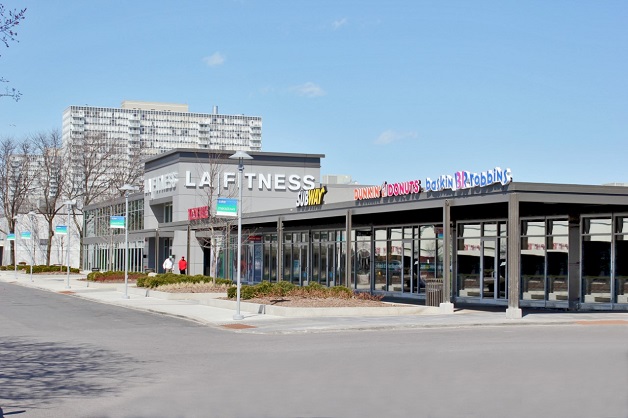
CHICAGO, LAS VEGAS—ICSC RECon just wrapped up in Las Vegas, and as expected, there was a lot of talk about e-commerce. But much of the chatter was not doom-and-gloom. Retailers and landlords alike have decided that while e-commerce may present a challenge to traditional retail, it won't destroy it.
“This controversy is more about perception than reality,” Mike Mallon, who represented Chicago-based Draper & Kramer at the conference, tells GlobeSt.com. “The Internet still accounts for less than 10% of retail sales.”
In fact, he says most people at the conference believe this technology presents many opportunities. “Retailers have embraced the Internet and are now trying to figure out how to integrate it into their business.”
A certain group of stores have fallen on hard times, but conference participants were focused on what new retailers they could attract to their properties, especially ones that would enhance the shopping experience.
“The mix of retailers has changed an awful lot,” Mallon says. For many landlords, this has meant taking a serious look at entertainment providers. “That's a major change that we've seen take hold over the past five years.” And owners have found that such tenants “extend the consumers' time at a shopping center.”
In addition to entertainment outlets, landlords are signing deals with fitness centers such as LA Fitness and Planet Fitness. “That's another major shift,” Mallon says. Landlords also used to look at fitness centers with skepticism, partly because other tenants were worried about having enough parking. But nowadays, many owners know how to ensure such businesses work well with other, more traditional tenants.
Draper & Kramer now appreciates the level of activity fitness brings to a shopping center. After meeting its representatives at a previous RECon, the company signed up LA Fitness for its Lake Meadows Market in the Bronzeville neighborhood on Chicago's South Side. They set aside parking for LA Fitness, and the center's anchor tenant agreed to the new lease. “There's a lot of change in the air,” and fitness-oriented businesses are eager to make deals. “All of them are out here.”
Discount retailers have also become far more important, he adds. “Their popularity grew out of the recession,” and even though the economy largely recovered, customers have not lost their taste for low-cost goods. TJ Maxx, Ross Dress for Less, Marshalls, and others have filled a lot of spaces lost by retailers that were more vulnerable to e-commerce competition.
But even with all the new creativity in the retail world, Mallon believes the pre-recession heyday of growth is long gone. In the Chicago region, for example, “I don't think we're going to get four or five million square feet of new space in a year.” It's more likely that developers will stick to the can't-miss locations and create around one million square feet of new space per year. Furthermore, experts estimate that more than 10,000 stores will close in 2018.
But Mallon sees no reason for pessimism. He expects just as many new stores will open this year as close. “There are a lot of retailers that are growing and finding new formats.” He points to Kohl's experiment with Aldi. The grocer has decided to shrink its footprint, but will allow low-cost Aldi to fill that space and hopefully give Kohl's access to an entirely new group of customers.
He also expects that landlords will continue to experiment with strategies to fill up now-empty retail spaces. And not all of the replacements will be other retailers. Residential uses are possible at many sites, as well as medical providers.
“This is the fastest change that we've ever seen,” he says. “The retailers and owners that are prepared for that change are the ones that will grow and succeed.”
© Touchpoint Markets, All Rights Reserved. Request academic re-use from www.copyright.com. All other uses, submit a request to [email protected]. For more inforrmation visit Asset & Logo Licensing.







